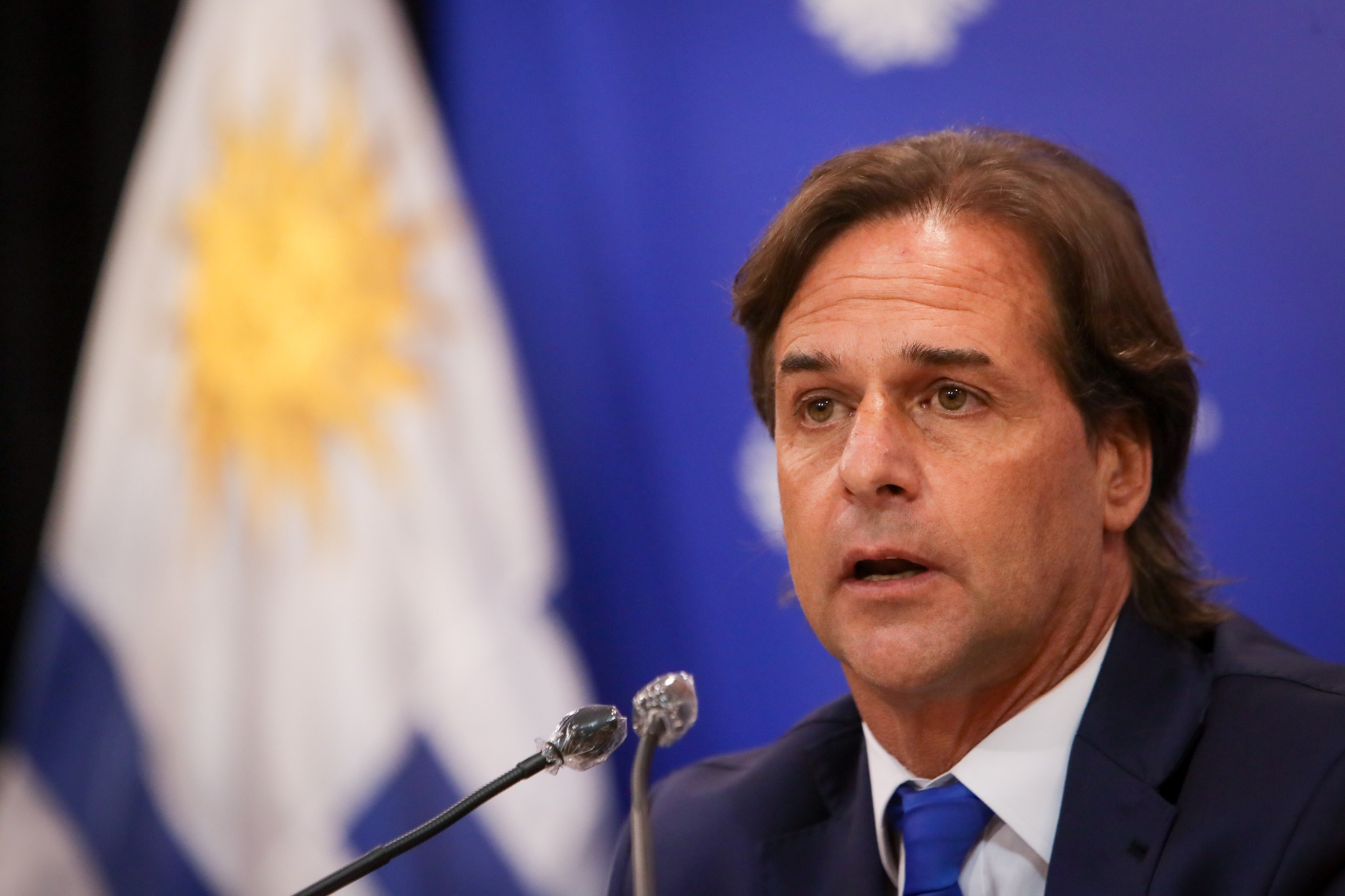The president of Uruguay defended the negotiation of free trade agreements independent of Mercosur, despite the fierce protectionist opposition of Alberto Fernández. The president criticized the adoption of a regional currency for its lack of credibility.
As part of the last tour of Mercosur, the President of Uruguay Luis Lacalle Pou once again stressed his country’s vocation in favor of tariff opening to international trade.
The Uruguayan president insisted on his position to celebrate trade agreements outside the group that makes up Mercosur, appealing to the flexibility clauses that may be appropriate for these purposes.

This aroused deep discomfort in the Alberto Fernández administration, which defends an ultra-protectionist position and almost favors autarky in the face of commercial exchange.
Uruguay formally submitted a request for adhesion to the Trans-Pacific Agreement to eliminate tariff barriers. Lacalle Pou explained that although he would prefer to move towards the opening together with Mercosur, he also clarified that the reluctance of the bloc should not be an obstacle to trade.
“Uruguay needs and has the vocation to open up to the world. Of course if we go in a group it is much better. Of course, if we offer the world a market like that of the four countries, we will have much greater negotiating power. That is what we are looking for, but we are not willing to stay still”, warned the President of Uruguay.
Lula da Silva‘s victory in Brazil is a new blow to Brazil’s opening vocation, the return of protectionist stagnation and the end of the negotiations for the lowering of the common external tariff. With this change of political sign in the most important economy in South America, Alberto Fernández’s position finds some revitalization within the bloc.
The Government of Lacalle Pou refused to sign the document prepared by the group of countries that make up Mercosur at the last meeting, alleging that mechanisms are not taken into account to make unilateral negotiations more flexible in each country that deems it necessary.
Uruguay signed its own document in opposition to the package signed by Argentina, Paraguay and Brazil, which denounces a dangerous state of stagnation in the reduction of the common external tariff and trade negotiations with other blocs.
It is also denounced that Mercosur has not managed to advance in a true customs union, since although a maximum legal tariff is established for each country, the truth is that a certain degree of discretion is left in the treatment of imports and trade intrabloc.
For example, Argentina applies quantitative restrictions almost constantly through non-automatic import licenses and restrictions on the purchase of foreign currency by the Central Bank. These actions are openly contrary to a true customs union on which, in theory, there should be no trade restrictions of any kind.
The document promoted by Lacalle Pou proposes the elimination of all tariff and non-tariff restrictions that are still applied within Mercosur trade, and suggests making regulatory requirements more flexible so that member countries can enter into unilateral agreements with other countries or trade blocs.
Likewise, the president of Uruguay criticized the idea of creating a Central Bank to centralize the currency at the regional level. This idea is shared both by the Argentine opposition in the “Juntos por el Cambio” space (which could rise to power in 2023) and by the newly elected president of Brazil Lula da Silva.
He stated that the discussion for a monetary union is not a priority for the bloc, but that the opening of the economy should be instead. He also mentioned the inflationary difficulties that many member countries are going through (Argentina being the most extreme case), and he was skeptical about the credibility that a regional currency could have in the face of these conditions.
“Today, talking about these issues, talking about how we are running, when we are not even walking, when we see the monetary difficulties that we have between countries, is advancing more than we should,” Lacalle Pou said.
With information from La Derecha Diario

